Previously:
Behind the Locked Door – 2 – Book Notes
As we wait for the final steps in the publication of Behind The Locked Door, we offer these quotations from the book. There are no pictures in the book but we have paired the quotations with pictures we think capture the book’s spirit. We will post more information as it moves forward. We are setting up a special page on our site where you can read about the book and purchase it directly from us through PayPal. The book will also be available for you to browse and buy in our Mendocino office and in bookstores and eventually online. If you are willing to write a book review to post online or to publish in print, please contact us at dhj@thinkinthemorning.com.
Keep your eyes on this space.
In Behind The Locked Door “San Kuuchamaa” is the site of many important events. The inspiration for this fictional town is a small village in Jalisco, Mexico (San Sebastian) featured in the picture below. The other photographs were taken in various locations throughout Mexico.
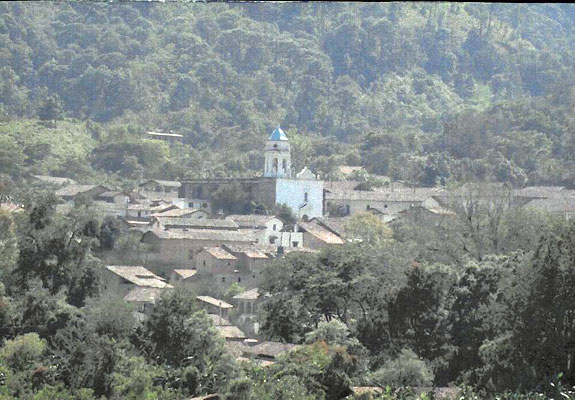
Quotes From Behind The Locked Door
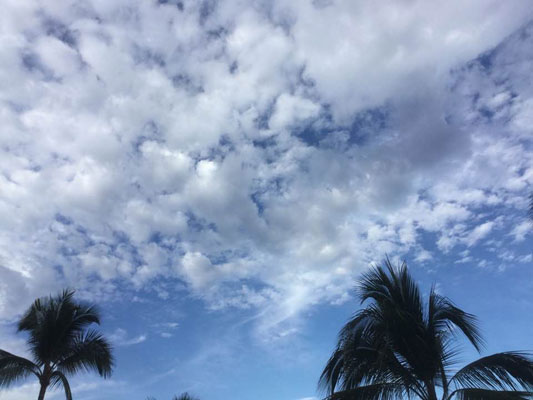
Puerto Vallarta
The clouds were clumped tightly like giant heads of white cauliflower all spread out on a pale blue blanket.
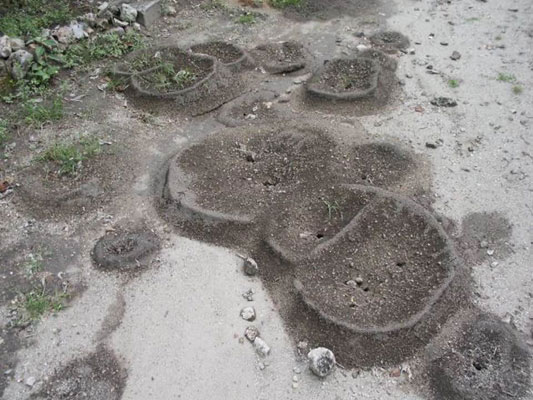
Yagul, Oaxaca, Mexico
People seldom wonder why they wake up each morning and go about another routine day. They abandon themselves to habit. Like the ant, they collect. Like the spider, they spin. They assume they will live forever. Death is not very likely before old age so people fall into the bad habit of living without any sense of urgency. They use their precious time poorly. Like useful bees, some collect, transform and give back. Others, no more than larvae, crawling, wriggling, eating—live in two dimensions and die unchanged from the day they’re born. A few transform and take a single flight before they settle down to live as ants. The lucky ones go through changes like the lowly caterpillar that turns itself into a butterfly and soars into the sky.
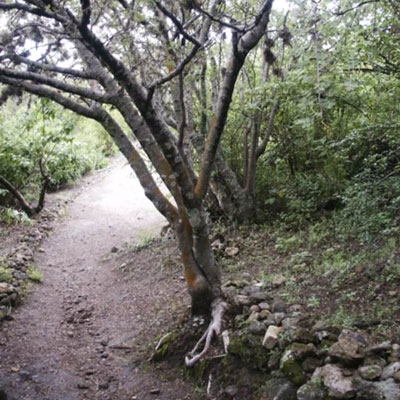
Yagul, Oaxaca, Mexico
Few in her village were bold enough to walk alone all the way to the top of the mountain. They believed it was haunted with the lives it had taken. Some who lived in the village said that when the wind blew down from the mountain, they could hear the wailing of those who had died. Bad things can happen on the mountain. It’s alive and powerful and can read thoughts. The mountain watches all life unfold. If you climb the mountain with bad intentions, you will be harmed. It depends on the purpose of your visit. If you go for a good reason, there will be no trouble. If you pray sincerely, something positive will happen. That’s how the spirit of the mountain manifests itself. Itandehui heard about the power of the mountain from her grandmother when she was a little girl soon after she discovered she had been given the gift of healing from Maayhaay.
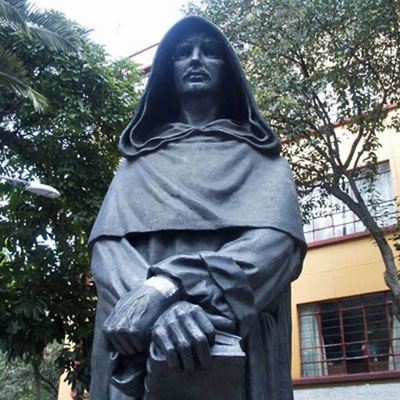
Plaza Giordano Bruno, Mexico City, Mexico
Father Jordan:
“There is a statue of Bruno in Mexico City. Have you been there?”
“No, I haven’t.”
“A shame. Anyway, when I first saw that statue with Bruno’s penetrating eyes, they burned right into my soul. I heard: ‘Listen, listen, if you have an ear. Think, think, if you are drawn. Wake, awake!’ Right then I found my purpose in life.”
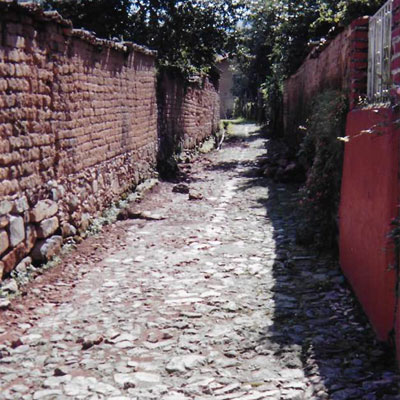
San Sebastian, Jalisco, Mexico
The Indians of Mexico viewed death as a continuation of life. They embraced it. To them, life was a dream; only in death did they become truly awake. It’s an illusion that the world is so shaped that it echoes every groan of every human being who ever lived. We bear our trials alone and cannot share them. What we can share are the dreams. The dreams were what Frieze had left in France. His life became absolute and fixed, stale and dead, a flat plane surrounded by mountains he was afraid to climb.
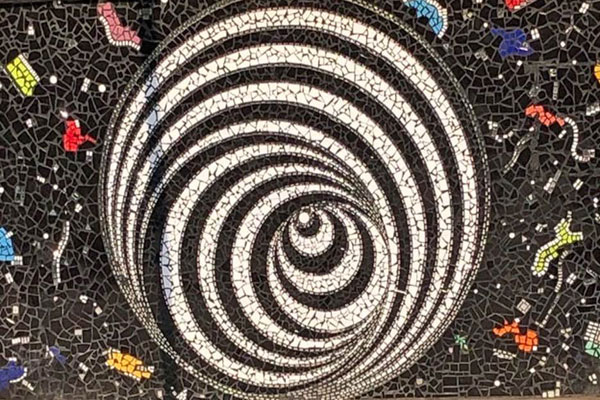
Plaza Lazaro Cardenas, Puerto Vallarta, Mexico
A world goes on at the horizon, a parallel universe. Eric sensed it even though he couldn’t see it. Thoughts worked their way to the edge and back again, flowed like waves in a pool, emerged out of a singularity, a steady stream of waves, each with a message working to get through.
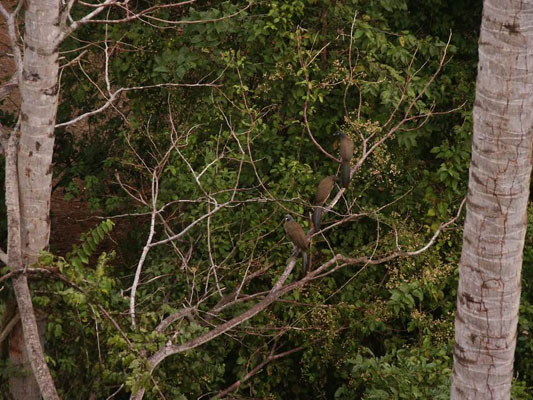
Zihuatanejo, Mexico
Birds disappear to escape the midday heat. The air radiates up and down like bubbles in a jar. Insects crawl into dark spaces for protection from the sun. Eric sits in a chair shaded by the roof of his palapa. He looks out to the ocean, visible through the palm trees. Nothing moves. The world no longer rotates. The sun is focused on him alone. Of course it’s an illusion. The sun’s rays are impartial. They cover half the world at a time, together with an infinite array of other planetary objects. The sun cares nothing about him or anything else its golden rays might touch.
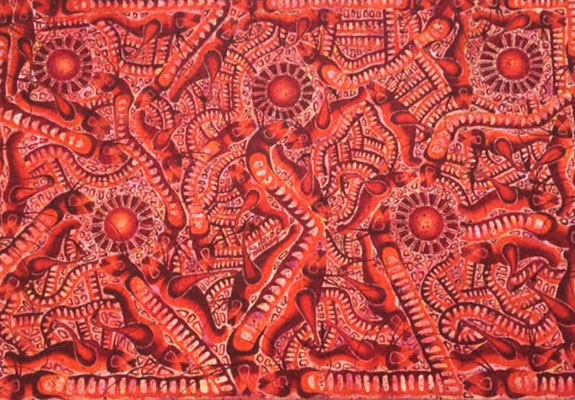
Las Quince Letras, Oaxaca, Mexico, Noé Díaz Ibañez artist
We dream about a golden time long ago and a place where everyone lived peacefully and life was easy. I dunno why, but God put a worm at the core of human nature. No such place exists on this earth.
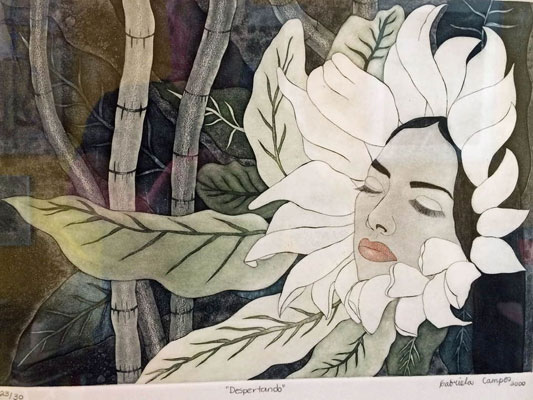
Casa de las Bugambilias, Oaxaca, Mexico, Gabriela Campos artist
The dreams came first. They started before the diagnosis, even before Manny discovered the polyp growing inside his body. And they didn’t stop. It wasn’t like imagining or hallucinating. What he dreamt felt actual, true. Pictures flashed in front of him. He was shocked at how strongly he could hear, see, and smell things that he knew weren’t there, everything in great detail. Sometimes he was merely a spectator, watching the show unfold before his eyes. Other times he was a participant in a series of continuous episodes so real that he lost the ability to distinguish dream from reality.
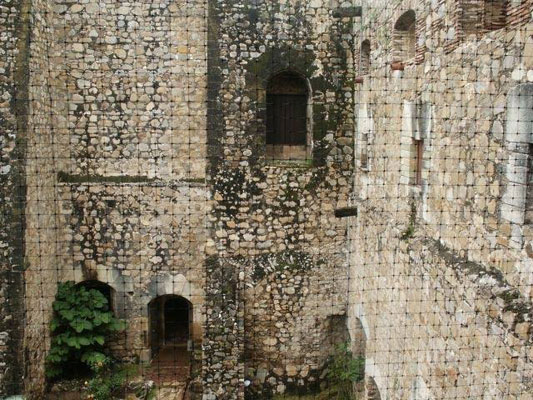
Cuilapan de Guerrero, Oaxaca, Mexico
The brain tricks stories out of us, and most of them aren’t true. Life is not a continuous function of time, it’s a patchwork of discontinuities that we stitch together one by one.
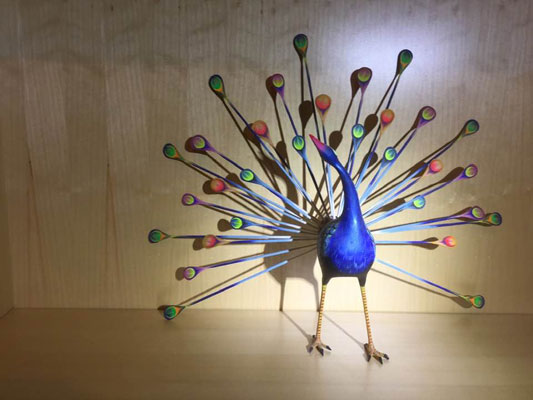
Peacock Alebrije by Tribus Mixes, T. Viguera, and Alfredo Rios
Life is made up of little things, just as the body is formed of molecules. Each life is a string of moments. While we remember the past and ponder the future, life exists only as a single instant in the present. If we fail to seize that moment, we fail to live. When all the molecules that make up the body separate and fly off into space, the body dies, but all those instants of time that made us, they still exist. They’re out there somewhere.
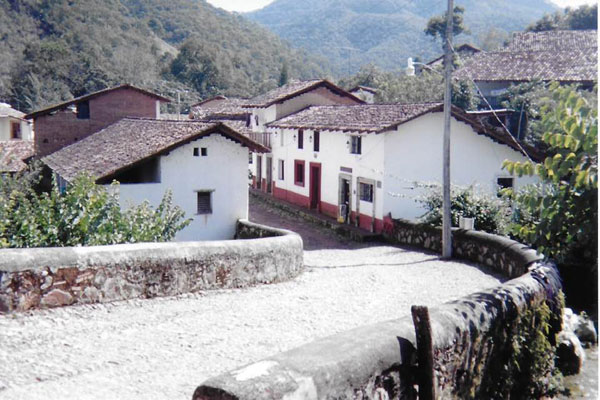
San Sebastian, Jalisco, Mexico
It was long before Itandehui’s time when the silver mines flourished and the mule trains tore through the jungle and the forests. The great wealth of the mines ended up in the hands of the Spaniards. The local Indians, Itandehui’s people, worked deep inside the earth, squeezed into narrow holes carrying heavy buckets up and down ladders and across little passageways, sometimes in stifling heat and sometimes in bitter cold. The wealthy built the beautiful stone buildings with the tile roofs and the cobblestone streets. Even now the beauty of the village, though worn and faded, takes away the breath of the few visitors who come. The Indians who did the work lived on beans and corn and hard tortillas that were almost impossible to chew with the few teeth they could keep in their heads over their short lives.
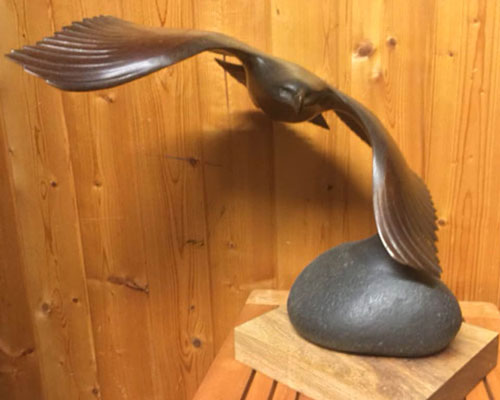
Red Tailed Hawk, James Sandberg artist
The three helpers during the daylight hours are the eagle, the red-tailed hawk, and the raven. They fly over the Earth and constantly watch everything that goes on below. The fourth helper is the owl, who flies and watches over everything at night.
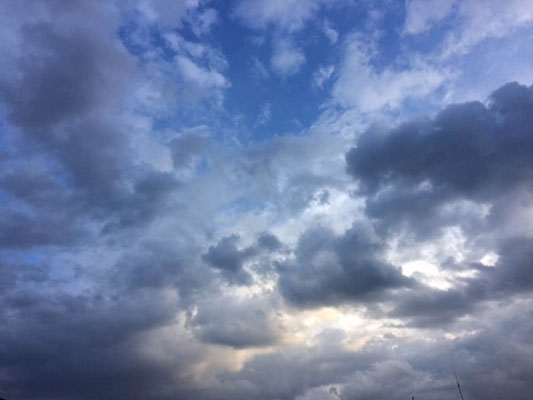
Oaxaca, Mexico
There are no miracles. Not even life itself is a miracle, not even love. There is evil, there is good, there is knowledge, there is ignorance. None of it means a thing.
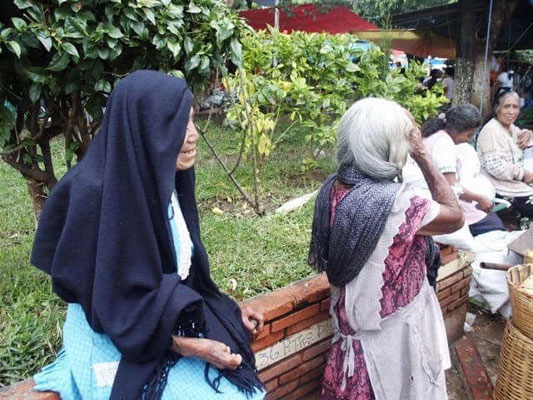
Ocotlán de Morelos, Oaxaca, Mexico
An Indian woman approached Eric. The first thing he noticed was how small she was. She stood beside him in her faded dress and embroidered apron. The older women he saw wore aprons, the younger ones didn’t. Her gray hair was parted in the middle, pulled tightly over her head, braided and coiled into a bun in the back. She smelled of cigar smoke. Eric thought maybe that was what had ruined her teeth. Her eyes were deep and dark as if they’d been burned into her head. Her hand was withered and brown.
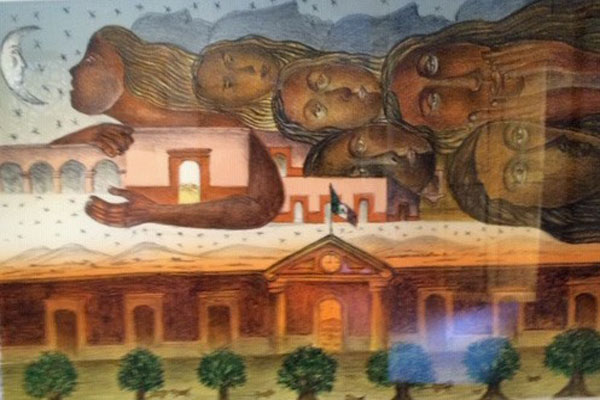
Oaxaca, Mexico, Rudolfo Morales artist
The spiritual view is that man is divine in origin with an immortal soul. The materialist view is that man is an evanescent accident with no moral nature except that created in him by his experience and culture. As mortal human beings, we have no way o’ knowing which view is correct, Eric. What holds and constitutes Christianity is a body of myths. We each interpret these myths differently. Most Christians believe them, some don’t, but all revere them. As a matter of faith, we believe there is an immortal soul that survives the death of the physical body. I’m not blind. I’m as convinced as anyone that a corpse canna come back to life, but I do believe the immortal soul goes on whether or not I can imagine how. But that is not the point. Whether or not we travel through eternity, we do, at the very least, have this moment here on earth. You are alive now, and that’s what matters. What you must do is to make the most of that, my son. You must make each day count even if it is to be your last.”

Dragon Alebrije, purchased Lucy’s CuCu, Puerto Vallarta, Mexico, Manuel Jimenez artist
She goes inside and makes a cup of tea with chia seeds. Everything is very quiet. The sun has begun to sink behind the terracotta tiles on the rooftops of the white-plastered buildings in town. A dog barks in the distance. When Itandehui closes her eyes she sees the three men of her visions, men she does not know. She will do what Maayhaay tells her to do, but she fears it will be useless. Everything she teaches the young fades with the bliss of youth. Tears form in her eyes. It’s always the same. Grief follows wisdom and the wise die as fools. Far from the village, high up on the mountain, the black jaguar walks slowly, silently on its journey, and fades into the fog.
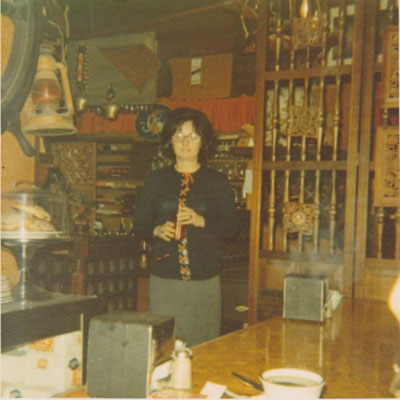
Marlene Hall, Sea Gull Coffee Shop, Mendocino, CA
Consciousness, the feeling and the knowing, that was the real magic. We, in all our loving and trying, even if we fail, are what matters.

La Biznaga, Oaxaca, Mexico, artist unknown
We watch patiently over the lives of men, over the blades of grass and the animals that feed on the land, try to be kind to others, and hope to last long enough to find the good life, but no one finds it. Not even Itandehui can find it. Anna began to think that Frieze was right. We wander in time and space, our existence pointless. Everything we hold holy, everything we love and pray for, even ourselves—pointless. She couldn’t tell Jordan. Even after Danny, when Jordan nearly lost his faith, the God she’d lost so long ago gave Jordan back his faith and optimism. Jordan told her he had too many people counting on him to throw in the towel now. Ana didn’t dare admit the despair she felt, not even to herself, except in those moments of great loss that punctuated her life with merciless arrows.

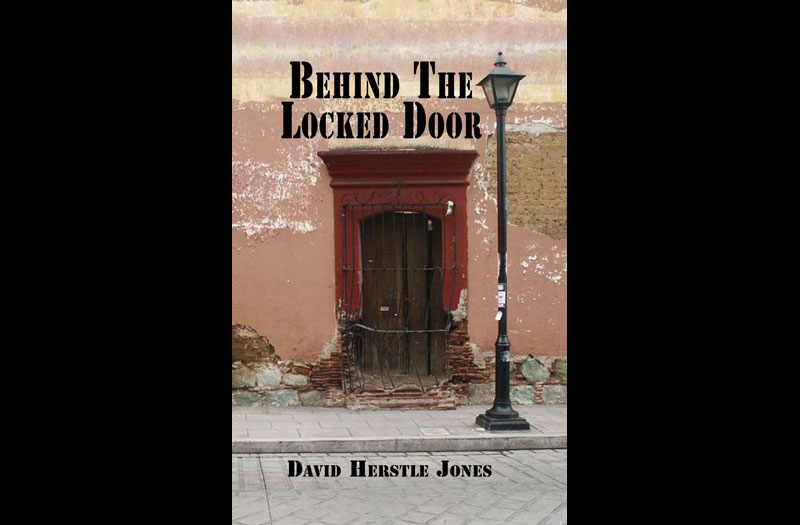
Wow! Amazing fotos. I just talked to my family in Mexico. Your writing and their voices made me miss Mexico so much!
¡Especially in Navidad!
Thanks Rhoda!